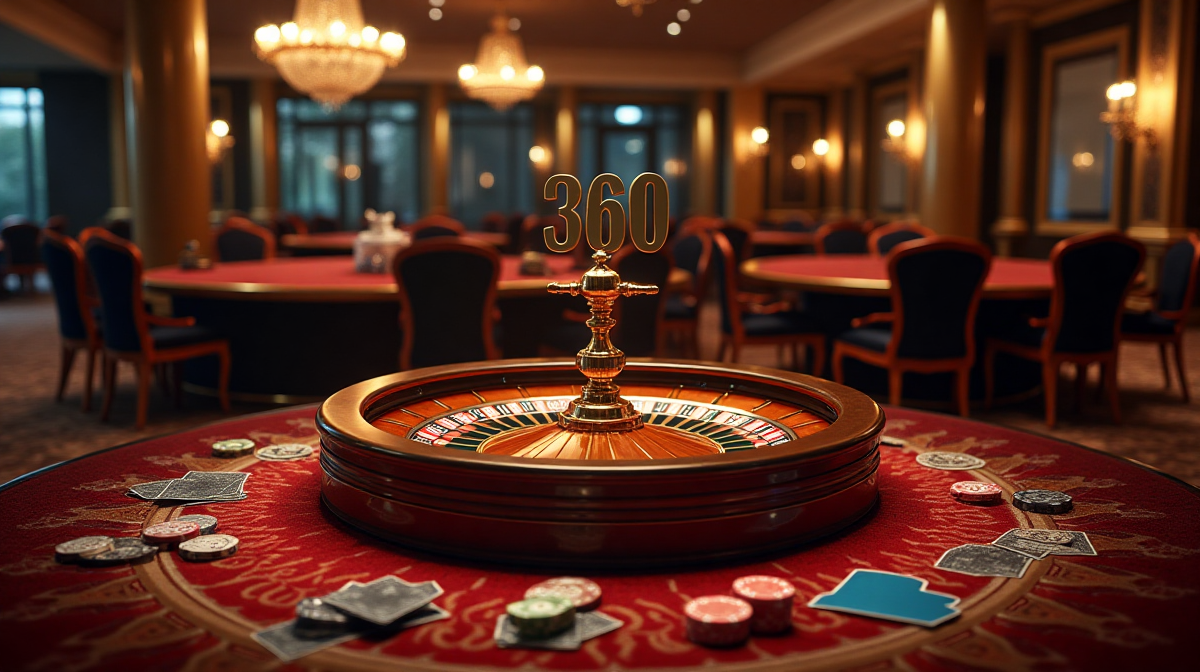Find Your Winning Bet Number – Is 360 It?
The pursuit of a winning strategy is inherent in gambling, and the quest for “the number” – that single digit or combination that unlocks consistent wins – is a timeless fascination. This article delves into the intriguing claim that 360 possesses special properties as a bet number, examining the origins of this belief, the science of randomness, and the importance of responsible gambling.
The Human Fascination with Lucky Numbers & Gambling
Humans have long attributed mystical significance to numbers. From ancient numerology to modern superstitions, certain digits are believed to hold power, attract fortune, or even predict the future. This fascination intertwines perfectly with gambling, where the desire to overcome the odds and achieve financial gain fuels the search for patterns and lucky charms. The allure of a simple solution, a single bet number that consistently delivers, is incredibly tempting.
Briefly Introduce the Claim: Is 360 a Winning Bet Number?
Recently, the number 360 has gained traction online as a purported “winning” bet number. Various sources claim its frequent appearance in winning lottery numbers, roulette spins, and other games of chance indicates a unique statistical anomaly. These claims are often accompanied by numerological interpretations and anecdotal evidence, suggesting 360 holds a hidden key to unlocking gambling success.
Scope of the Article: Separating Fact from Fiction
This article aims to critically examine the basis of this claim. We will explore the origins of the 360 theory, analyze the role of probability and randomness in betting, and assess whether 360 truly holds any predictive power. We'll also consider how this applies to various games and, crucially, emphasize the importance of responsible gambling practices. Understanding bet number prediction today requires a dose of reality.
The Origins of the 360 Theory – Numerology & Ancient Beliefs
The significance of 360 dates back centuries. In ancient cultures, it was associated with the cyclical nature of time and the cosmos. The number represents a complete circle – 360 degrees – symbolizing wholeness and perfection. Numerological interpretations often link 360 to abundance, stability, and spiritual fulfillment. These ancient associations have been resurrected in modern contexts, fueling the belief that 360 possesses a unique energetic vibration that attracts positive outcomes, making it a favored bet number.
Geometric & Mathematical Significance of 360
Mathematically, 360’s prominence stems from its role in measuring angles and circles. It’s a highly divisible number, making it convenient for calculations and divisions. This inherent mathematical property, however, doesn't inherently translate into gambling success. While the number is mathematically clean, it doesn't defy the laws of probability.
Connections to Dates, Calendars and Cultural Relevance
The number 360 appears in various calendar systems and historical events. Some interpretations link it to astrological cycles and cosmic alignments, further reinforcing its perceived mystical significance. The appeal of finding patterns in seemingly random events is strong, and 360's frequent appearance in different contexts adds to its mystique.
Examination of Online Claims & Proof - analyzing viral trends
A quick online search reveals numerous claims supporting 360 as a lucky number. Viral posts often showcase seemingly significant instances where 360 appeared in winning lottery numbers or roulette spins. However, these examples are often selective, cherry-picking instances that support the claim while ignoring the vast majority of times 360 doesn’t appear. This confirmation bias is a common pitfall in interpreting random events.
Understanding Random Number Generators in Games of Chance
Modern games of chance rely on Random Number Generators (RNGs) to ensure fairness and unpredictability. These algorithms are designed to produce sequences of numbers that are statistically random, meaning each number has an equal chance of being selected. RNGs are rigorously tested to prevent manipulation and guarantee impartiality, rendering the idea of a “hot” or “cold” number largely meaningless.

The Gambler's Fallacy and its Relation to Hot & Cold Numbers
The gambler's fallacy is the belief that past events influence future outcomes in independent random events. For example, believing that because a number hasn't appeared in a while, it's due to hit. This is incorrect. Each spin of the roulette wheel, each lottery draw, is independent of previous results. The probability of any number appearing remains constant, regardless of its past frequency. This directly challenges the idea that a specific bet number like 360 is somehow more likely to win.
Statistical Analysis: Is 360 Significantly More/Less Frequent Than Other Numbers?
Rigorous statistical analysis consistently demonstrates that 360 does not appear significantly more or less frequently than any other number in truly random games. While it may occasionally appear in winning combinations, this is simply due to chance. Examining historical lottery data or roulette results reveals no statistically significant bias towards 360. The concept of bet number 360 being privileged is not supported by data.
The Law of Large Numbers & Why Patterns are Illusory
The Law of Large Numbers states that as a sample size increases, the observed frequency of an event will converge towards its theoretical probability. In the context of gambling, this means that over a large number of trials, all numbers will appear with roughly equal frequency, debunking the notion of persistent patterns. Any perceived patterns are likely the result of random fluctuations and cognitive biases.
Lottery: Analyzing the Frequency of 360 in Lottery Draws
When analyzing lottery draws, the frequency of 360 appearing as part of a winning combination is statistically indistinguishable from any other combination of numbers. Powerball and Mega Millions, for example, show no evidence of 360 being favored.
Roulette: Examining the Probability of 360
In roulette, the possibility of landing on a number that sums to 360 is irrelevant, as the numbers on the wheel range from 1 to 36 (plus 0 and 00). Each number has an equal probability of being selected, and the previous spins have no influence on future outcomes.
Sports Betting: Can 360 be Incorporated into Statistical Modeling?
The number 360 has no intrinsic relevance to sports betting. While statistical modeling plays a crucial role in predicting outcomes, these models rely on factors such as player statistics, team performance, and historical data – not arbitrary numbers like 360.
Other Games: Briefly address other betting games if keywords indicate interest.
Similarly, in games like Keno or Bingo, the selection of numbers is entirely random. The appearance of 360 in a winning pattern is a matter of chance and doesn't indicate any underlying predictive power.
The Importance of Treating Betting as Entertainment, Not an Income Source
Gambling should always be viewed as a form of entertainment, not a reliable source of income. The odds are inherently stacked in favor of the house, and relying on a lucky number or any other system to guarantee wins is a recipe for financial loss.
Setting Limits: Time & Budget
Responsible gambling involves setting clear limits on both time and money spent. Decide on a budget before you start and stick to it, and avoid chasing losses.
Recognizing Problem Gambling & Resources for Help
If gambling is causing problems in your life, it’s important to seek help. Resources are available to provide support and guidance.
Debunking “Guaranteed” Winning Systems
There is no such thing as a “guaranteed” winning system in gambling. Any system that promises consistent profits is likely a scam or based on flawed logic. Understanding how to play poker game strategically, for example, is skill-based, but even the best players experience losses.
Quotes from Statisticians & Gambling Experts
“The idea that a number can be ‘lucky’ in a random game is a fundamental misunderstanding of probability,” says Dr. Anya Sharma, a statistician specializing in gambling behavior. “Each event is independent, and past results have no bearing on future outcomes.”

Addressing Common Arguments in Favor of 360's Luck
Proponents of the 360 theory often point to anecdotal evidence and selective data. However, these arguments fail to withstand rigorous statistical scrutiny. Confirmation bias and the gambler's fallacy are common culprits behind these beliefs.
Why Relying on a Single Number is Misleading
Focusing on a single number distracts from the fundamental principles of probability and responsible gambling. It fosters a false sense of control and can lead to reckless betting behavior.
Recap: 360 is Not a Guaranteed Winning Number
The evidence overwhelmingly demonstrates that 360 is not a guaranteed winning bet number. Its perceived significance stems from numerological beliefs, mathematical properties, and cognitive biases, not from any inherent statistical advantage.
Focus on Informed Betting: Research & Statistical Awareness
Instead of relying on luck, focus on making informed betting decisions. Research the games you play, understand the odds, and manage your risk effectively.
The Role of Luck & Managing Expectations
Luck plays a role in all gambling, but it's unpredictable and cannot be relied upon. Manage your expectations, accept that losses are inevitable, and gamble responsibly.
Final Thoughts: Enjoying the Game Responsibly.
Gambling should be an enjoyable pastime, not a source of stress or financial hardship. Embrace the entertainment value, practice responsible gambling habits, and remember that there is no magic number to guarantee success. Even understanding poker hand rankings doesn't guarantee a win, it just improves your odds.

